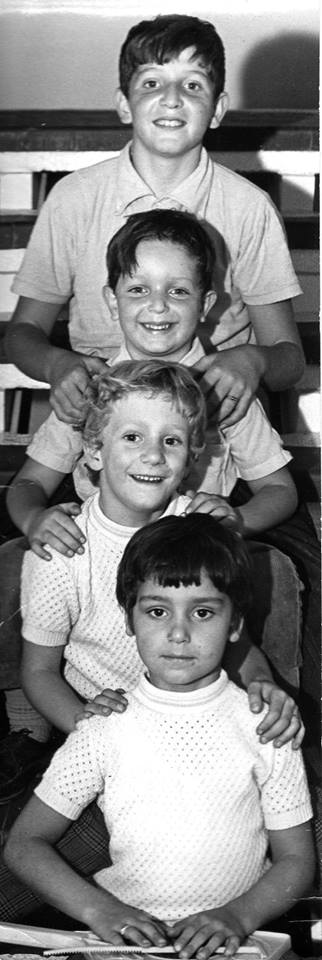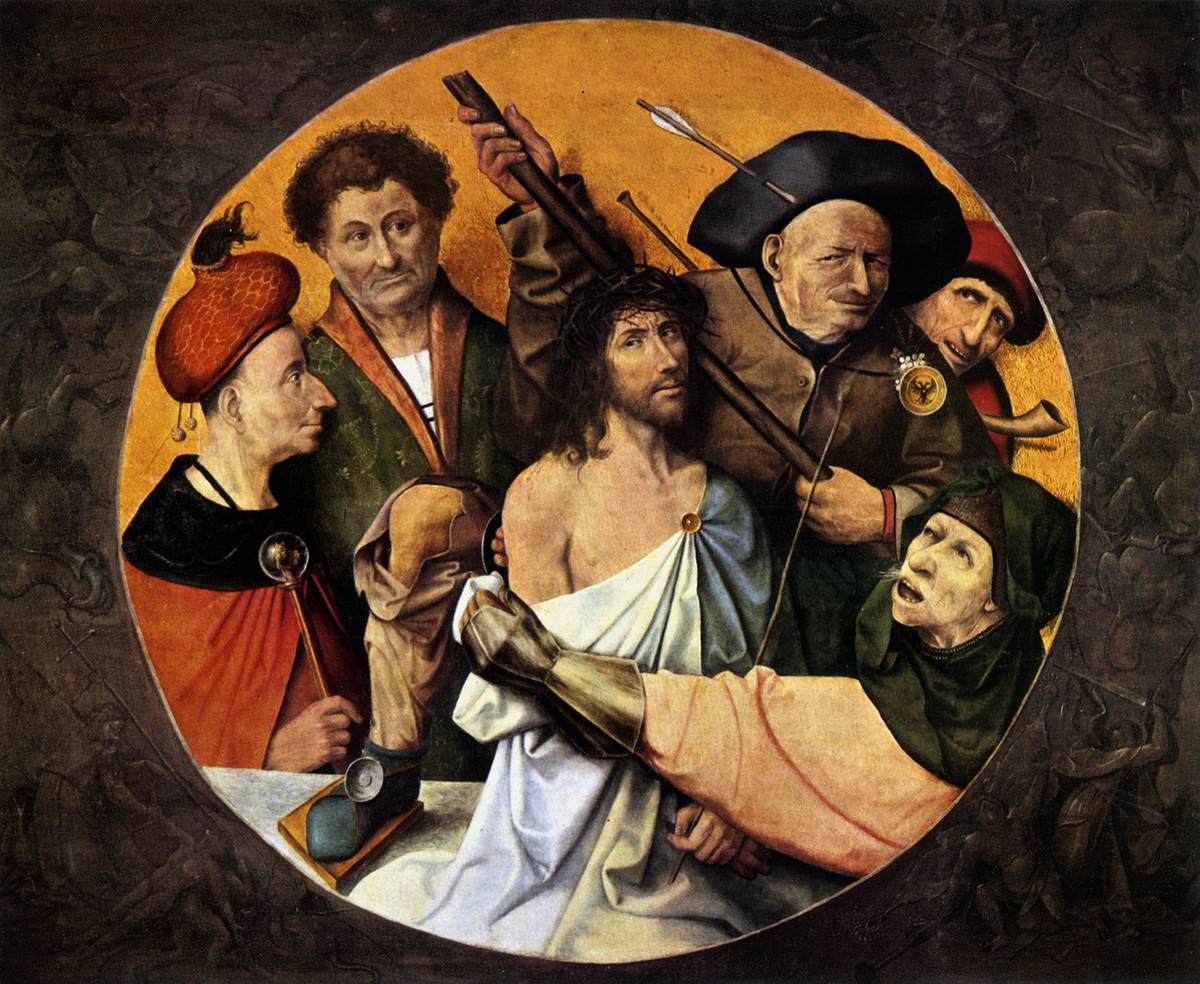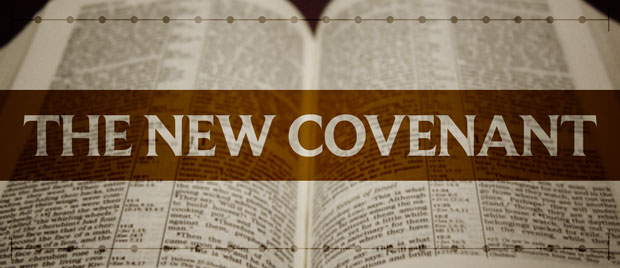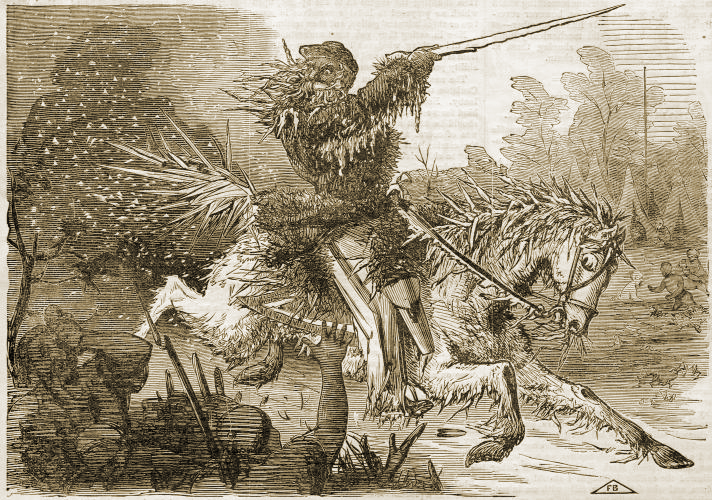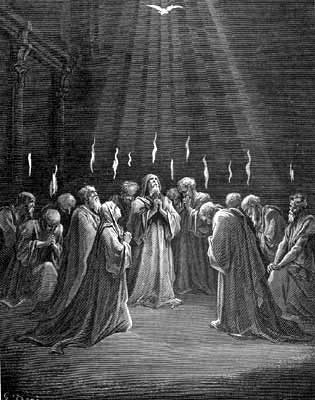by William Pierce

Today I want to share with you my very deep concern, my worry about the crime problem in America. I don’t mean the sort of crime we hear about and see every night on the television news: the drive-by shootings by drug gangs, and the muggings and robberies, and the rapes and the burglaries, and the murder of some tourist who made the mistake of stopping her car in the wrong neighborhood. All of that is just part of the price we pay for multiculturalism. It comes with the diversity we’re told we’re so lucky to have.
No, that crime problem is bad enough, but it’s a different crime problem and a different type of criminal I want to talk about today, a much more dangerous type of criminal.
I’m sure that everyone listening today has heard about what happened in Waco, Texas, earlier this year when the government wiped out a bunch of religious cultists. Let me just briefly review the facts of that matter. A group of 140 or so people—men, women, and children—were living a few miles outside Waco in a little community they called Mount Carmel. They were members of a church which had split off from the Seventh Day Adventists back in the 1930s. They called themselves Branch Davidians. The church group had been at Mount Carmel for more than 30 years, on land they owned and in buildings they had built with their own hands. Occasionally they had internal squabbles, but they never caused any trouble for their neighbors. They believed in keeping to themselves.
Sophisticated people might sneer at the beliefs of the Branch Davidians, but their ideas really were no stranger or more irrational than those of many other churches, including some quite large ones, which base their beliefs on literal interpretations of the Bible. The Davidians put an especially heavy emphasis on the Book of Revelation and believed that the collapse of civilization was at hand. They believed that they should separate themselves from society and prepare for Judgment Day. For this reason they had stocked up on food, fuel, and other necessities—including, apparently, a few guns.
Now, there’s no law against stocking up on guns, even if you take the Bible seriously. But the government is pretty nervous these days about anyone who isn’t Politically Correct having the means to protect himself. And certainly the Branch Davidians were a Politically Incorrect group. For one thing they believed in spanking their children when they needed discipline. The government calls that “child abuse.” They also believed in permitting their girls to marry as young as 13 years old, and they let the leader of their church have more than one wife. So when a disgruntled former member told the government that the leader of the group, David Koresh, was a dangerous man and that he had a lot of guns, the government sent an undercover agent, a spy, in to check it out. Apparently the spy found nothing illegal going on at Mount Carmel. At least, if he did, the government hasn’t said what it was. But he did find out enough to lead one of the government’s secret-police agencies, the Bureau of Alcohol, Tobacco, and Firearms, to decide to raid the place.
The Bureau of Alcohol, Tobacco, and Firearms—ATF for short—is basically a bunch of tax-enforcement cops. Their original job was to make sure that the government got its tax on every bottle of booze and every pack of cigarettes sold in the United States. That accounts for the alcohol and tobacco part of their name. Back in the days of Prohibition and widespread moonshine making they stayed pretty busy, breaking up unlicensed stills and raiding illegal nightclubs. Some of the people they raided used to fight back with tommy guns, and so eventually the ATF also got the job of making sure that anyone who bought a tommy gun paid the required tax on it and filled out all the government forms. These days that’s most of the ATF’s work: checking to make sure that whenever firearms are bought or sold all of the required forms are filled out.
When you give people work like that to do, it’s no wonder that they eventually turn mean. The ATF has the reputation of being the most vicious bunch of armed thugs on the Federal payroll. There have been several efforts in recent years to get rid of them, to phase them out, to cut off their budget. They’ve survived because they’re the darlings of the gun-control nuts in the media. They’ve allied themselves with the people who believe that no one should have the right to self-defense, that all privately owned firearms should be confiscated by the government. The gun-control nuts love the ATF because it locks up gun owners who didn’t fill out all the forms.
It not only locks them up, it terrorizes them: it stages spectacular raids, often inviting the news media to come along and film the ransacking of their homes and the seizing of their guns. The ATF craves publicity, because it’s trying to convince the public that the ATF’s raids are protecting everyone from dangerous people who have guns. So the ATF looks for photo opportunities, for the chance to stage media events.
There’s no better target for one of the ATF’s photo opportunities than a cult. The ATF usually doesn’t raid people in the mainstream. It picks people or groups who aren’t likely to have powerful friends. It picks on people who seem a little strange or different, people who aren’t likely to get much sympathy from the general public. And once a group has been labeled a “cult” it’s not likely to get much public sympathy. To ordinary people cults seem sinister, unnatural, dangerous. And certainly the Branch Davidians had many of the characteristics of a cult. So the ATF decided to raid them. There was no proof that the Davidians had done anything illegal, of course. But they did have guns, and they were a cult. So a raid was organized: a big one, with plenty of newspaper reporters and camera crews from the television networks.
Early on the morning of February 28 this year, a Sunday, the ATF launched its raid, sending a hundred heavily armed agents up ladders and onto the roofs of Mount Carmel’s buildings, with the television reporters recording everything. Then the shooting started. The ATF says the Branch Davidians fired first. The surviving Davidians say the ATF fired first. It’s difficult at this time to know which side is telling the truth. We do know, however, that when the ATF stormed their homes, the people in Mount Carmel called the police for help. They dialed 911, and as with all 911 calls it was recorded. On the recording the group’s leader, David Koresh, can be heard frantically asking the police to send help. “There are armed men outside, and they’re shooting at us!” he cried excitedly into the telephone. And Koresh and his people did shoot back at the armed men swarming over their homes. They shot back and killed four of the attackers and wounded more than a dozen others, forcing the ATF to retreat.
The folks in the Clinton administration back in Washington weren’t happy to hear that. People aren’t supposed to fight back when the secret police attack them. So Clinton sent in the FBI, and the FBI brought along its elite Hostage Rescue Team, although it’s not clear who were the hostages to be rescued.
A long standoff began. The ATF and the FBI were outside with their tanks and machine guns and helicopter gun ships. Inside were David Koresh and his wives and children and the other members of his church, along with the bodies of six church members killed by the ATF during its initial attack. In a recorded telephone conversation between Koresh and an ATF agent during this period, Koresh asks why the ATF hadn’t just given him a telephone call and told him they wanted to check his guns or perhaps stopped him when he was out jogging and asked him about it. He said, quote, “It would have been better if you just called me up or talked to me. Then you could have come in and done your work.” End quote. Koresh also spoke with his attorney by telephone during the standoff, and that conversation also was recorded. Koresh explained why his church members had shot back at the ATF agents during the February 28 raid. He said, quote: “I don’t care who they are. Nobody is going to come to my home, with my babies around, shaking guns around, without getting a gun back in their face. That’s just the American way.” End quote.
Yes, that is the American way, or it used to be, when America was still healthy. Bill and Hillary Clinton wouldn’t understand that, of course. Certainly Attorney General Janet Reno and the people in the ATF and the FBI wouldn’t understand it either. Nor would all of the gun-control nuts in the media who think the ATF is just wonderful.
After what had happened Koresh and his followers didn’t think the ATF people were so wonderful, however, and they weren’t inclined to surrender to them, although Koresh did let the church members who wanted to leave go out, and more than 20 children went out with them. But the rest—more than a hundred—stayed with Koresh and prayed and read their Bibles.
And eventually the secret police got tired of waiting, and so on April 19 they got the OK from the Clinton administration in Washington to move against Mount Carmel with tanks, to knock holes in the buildings with the tanks and pump in gas. And so that’s what the ATF and the FBI and the so-called Hostage Rescue Team did.
During the siege the electricity had been turned off to Mount Carmel, and so the church members had begun using kerosene lanterns for light indoors. And when the ATF had shot out the glass in their windows, they had piled up bales of hay against the windows to keep the cold wind out. When the tanks smashed holes in their walls, a lantern was knocked over and set the hay afire. It was a windy day, and the fire spread quickly. Before it was over 99 church members were dead—or a hundred, if we count one fetus which burned to death with its pregnant mother.
 The ATF and the FBI immediately put the blame on the church members. “It was mass suicide,” the ATF and the FBI said. “They set the fire themselves.” And the Clinton administration people in Washington echoed: “Yes, yes, it was mass suicide! They set the fire themselves.”
The ATF and the FBI immediately put the blame on the church members. “It was mass suicide,” the ATF and the FBI said. “They set the fire themselves.” And the Clinton administration people in Washington echoed: “Yes, yes, it was mass suicide! They set the fire themselves.”
But unfortunately for the ATF and the FBI and the Clinton administration, there were a few survivors, a few church members who managed to escape the flames, and they explained what had happened inside. They explained about the hay and the kerosene lanterns, and they explained that there never was any intention to commit suicide. They explained that when one of the government’s tanks started the blaze, it spread so rapidly that most of the church members were trapped.
One more fact: after the fire had burned itself out and all the charred corpses had been hauled away, the ATF began sifting through the ruins looking for all those illegal weapons it had talked about during the siege. It had claimed, after the failure of its initial assault in February, that the church members had had the ATF “outgunned.” The church members in Mount Carmel had been shooting back with .50 caliber machine guns, the ATF claimed. After the fire the ATF began releasing more stories to the news media about all the dangerous weapons it anticipated recovering from the ruins. It hinted about hand grenades, bombs, rockets and other weapons. But it never did recover anything of the sort, because there was nothing of the sort. The ATF had been practicing what the government calls “damage control”: lying to protect its image, lying to make the Davidians look dangerous and criminal, lying to justify the killing of a hundred or so innocent people.
So today David Koresh and his church members are dead, Mount Carmel has been wiped off the map, and the Clinton administration people in Washington are going about their business as usual. The FBI and the ATF are still carrying guns and looking for new photo opportunities. The FBI’s Hostage Rescue Team, which on April 19 murdered more people in one day than it has rescued in its entire existence is still in business, still drawing paychecks and presumably looking for more people to practice its rescue skills on.
That’s the crime problem in America I’m worried about. I’m worried when the government commits mass murder and gets away with it and doesn’t even seem to be ashamed of itself.
Now, I know that the Clinton administration and the FBI and the ATF and the so-called Hostage Rescue Team say it wasn’t murder at all. They say they didn’t intend to kill all of those people, especially not the women and the children, that it was just an unfortunate accident and let’s stop talking about it and get onto some other subject, like the economy.
An accident! Suppose there’s a church down the street whose beliefs I find offensive and I hear rumors that they’re using the wrong kind of Bible, and besides that some members of the church are said to carry guns. So I take a bunch of heavily armed men and march into that church and demand that they all come out with their hands up. It’s not my intention to kill anyone, just give them a good scare and check out what kind of Bible they’re using. But the people in the church panic, shooting starts, and when it’s all over a hundred people are dead. What does that make me?
A mass murderer, that’s what. And what does that make Bill Clinton and Janet Reno and their secret police bosses? Mass murderers, that’s what. There was absolutely no excuse for the ATF to attack David Koresh and his church in the first place. Absolutely no excuse, even if they hadn’t filled out all the ATF forms for whatever guns they had. For the ATF it was just a publicity stunt. The ATF thought it could get away with it, because it’s been allowed to get away with similar publicity stunts in the past. And when the publicity stunt backfired and people were killed the ATF was guilty of murder, regardless of what its intentions were. No government should tolerate that sort of criminal irresponsibility. A government that does tolerate it is itself criminally irresponsible and deserves to be overthrown by its citizens.
Do my words sound too strong? Do I sound like some sort of extremist? Do you understand what has happened? A hundred people, mostly women and children, who never bothered their neighbors have been murdered by the government. A church, which may have been a little bit nutty, but which had just as much right to practice its religion as any other church in this country, has been wiped out. The government did it. And the government isn’t even apologetic about it. That scares me. I don’t think such a government should be tolerated. I’d rather take my chances with Black street gangs any time than with such a government.
Another thing that scares me is the lack of concern on the part of most Americans. I realize, of course, that Americans see nearly everything that happens through the lens of the controlled mass media, and throughout the entire affair in Waco the television networks were practically a cheering section for the ATF. Every time the ATF or the FBI came out with a new lie about the Davidians or what had happened, the news media repeated it as if it were fact.
If the news media had immediately publicized the recorded telephone conversations with Koresh—his 911 call to the police in which he asked for help and reported that armed men were shooting at his church—if they had publicized his comment to the ATF agent after the February 28 attack, when he said “It would have been better if you’d just called me up or talked to me. Then you could have come in and done your work.” Or his comment to his lawyer that when people came charging into his home waving guns around his babies, they were going to have guns shoved right back into their faces, because that’s the American way—if the news media had publicized these recorded telephone conversations with Koresh when they happened, instead of holding them back until after the April 19 massacre, then the American public certainly would have had quite a different attitude toward the whole affair.
I remember how my own attitude changed as new information became available. When I first saw the story on television on February 28, I took for granted what the news reporter said: the ATF had tried to serve a search warrant on a bunch of heavily armed religious cultists, and the cultists had opened fire on them with .50 caliber machine guns. And then the case was made by the reporters that the cultists were crazy—their leader, we were told, believes he is Jesus Christ. What I learned from the television news that first day almost made me sympathize with the ATF.
It wasn’t until later that the news began slipping out to indicate there was another side to the story. Koresh didn’t really believe he was Jesus. The ATF hadn’t simply walked up and knocked on the front door of the church to deliver their warrant; they had staged a full-scale military assault for the benefit of the news media. They had climbed onto the roof and thrown concussion grenades in through the windows instead of knocking on the front door. And then there were hints that, well, maybe the ATF agents were the also the ones who began shooting first.
And the more I learned the more I wondered: just what had the Branch Davidians done to warrant this sort of military assault on their church? What kind of dangerous terrorists were they? I learned that the local people in Waco didn’t consider them to be terrorists at all, just quiet, polite people who mostly kept to themselves.
After the big fire on April 19, I accepted at first the government’s word—backed up by the news media, of course—that the Davidians had set the fire themselves and committed mass suicide. Only later did I hear the survivors deny this and explain what had happened when the government’s tanks began smashing in the walls of their church and knocked over a kerosene lantern onto a bale of hay.
And I kept waiting to hear about all the dangerous weapons—.50 caliber machine guns, rockets, and so on—that the government would discover in the ruins of the church. And then I learned that there were no weapons. And finally I heard the recordings of telephone conversations with Koresh.
So now I’ve been waiting for more than two months for the rest of America to begin to feel the sense of outrage against the government that I felt when I understood what had happened at Waco. And indeed a few people are outraged. A few people are saying, hey, Bill Clinton, we’re not going to forget about this! We’re angry that our government would do something like this. We want the people responsible put on trial for murder.
A few people are expressing the same concern about government criminality that I feel. But not enough. And that’s really too bad. Because when the government is allowed to get away with a crime as monstrous as the slaughter of the Branch Davidians, it will commit more crimes in the future. Other people will be slaughtered. Probably at first people who, like the Branch Davidians, are Politically Incorrect. With that sort of government in power, though, no one should feel safe, whether he’s Politically Correct or not.
—December, 1993

